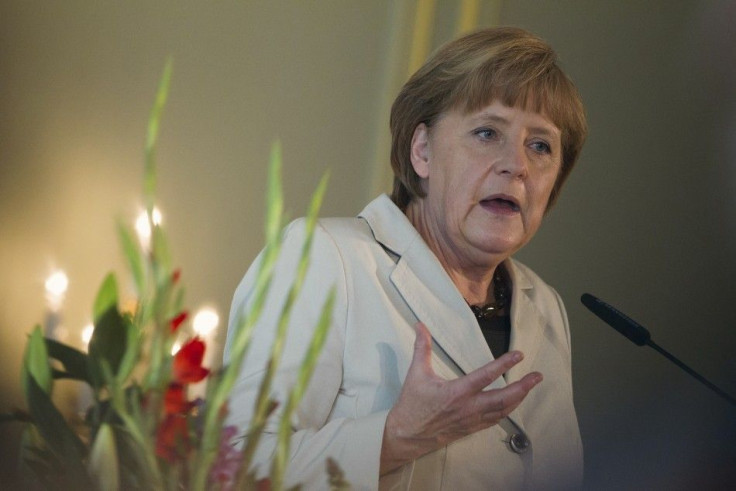Germany Pessimistic Over Greek Debt Resolution, Despite Pro-Bailout Party?s Victory

Germany has reacted with a yawn to news that pro-bailout parties in Greece won the national elections on Sunday, citing cynically that the Greek debt crisis is nowhere near a resolution.
The pro-bailout New Democracy, or ND, Party of Greece “won” the election with 29.7 percent of the vote, followed by the far-left anti-bailout Syriza party at 26.9 percent; and the Socialist Pasok party placing third with 12.3 percent.
ND and Pasok, the only pro-austerity parties in Greece, will now seek to form a coalition government in order to continue the path toward austerity and avert a potentially catastrophic exit from the euro zone bloc.
But voices in Europe's most powerful nation, Germany, remain skeptical that anything positive will be accomplished in Greece anytime soon.
“The election result does not change the fact that Greece still has €327 billion [$413 billion] of debt,” the center-right Frankfurter Allgemeine Zeitung newspaper coldly stated.
“The Greek drama is not over, Zeitung also declaimed. The Greeks want to keep the euro, but most find the conditions for further aid unjust. Furthermore, they see themselves as victims of ruinous scheming by their corrupt elite, as well as by Brussels and, of course, Berlin. In light of such perceptual disorders and the political polarization in the country … it remains a mystery as to how the reforms and resuscitation of the economy are supposed to succeed. As a result, the euro crisis has not been overcome by this supposedly key election.
“A New Democracy-Pasok coalition might be popular with Greece's creditors at the EU and IMF, but the majority of Greeks will likely want to show them the door as soon as possible,” Der Spiegel gloomily declared.
Der Spiegel poured scorn on the Greek elections by explicitly stating that the financial and chaos in the country will not be solved by any political party.
“The dimensions of the Greek chaos will only become clear over the course of the next few days, once the negotiations over a government are finished and a new coalition is formed,” the paper coldly wrote.
“Or rather, if a new coalition is formed -- and that's a big if. Even before the election, it was clear that no single party would win enough seats to be able to govern by itself.”
The center-left Berliner Zeitung struck an even more ominous tone, indicating that Antonis Samaras has nothing to cheer about.
“Under immense pressure of time, he has to form a government that faces impossible challenges,” the paper stated.
“The sad truth is that the Greeks, who only yesterday rebelled against the cuts imposed by Europe in a desperate show of pride, are today waking up as beggars.”
Indeed, Alexis Tsipras, the head of Syriza, which vehemently opposed the bailouts, has vowed he will not cooperate with either ND or Pasok in their efforts to consolidate the austerity programs that are already burdening the Greek people.
Reflecting the deep divide among the Greek public, while ND saw its share of the electorate increase from the May election, so did Syriza (by a whopping 10 percent).
Meanwhile, German political leaders publicly congratulated Samaras for his victory but also gently insisted that Athens could not renegotiate terms of the bailout agreements.
“[Chancellor Angela Merkel] congratulated [Samaras] for the good election result, a German government press office statement said. At the same time, she said that she expected Greece to stick to its European commitments.
“The election result showed that Greek voters chose to forge ahead with the implementation of far-reaching economic and fiscal reforms in the country, German Finance Minister Wolfgang Schaeuble said in a statement. This path [of austerity] will be neither short nor easy but is necessary and will give the Greek people the prospect of a better future. In order to succeed, the program requires political stability.”
© Copyright IBTimes 2024. All rights reserved.











